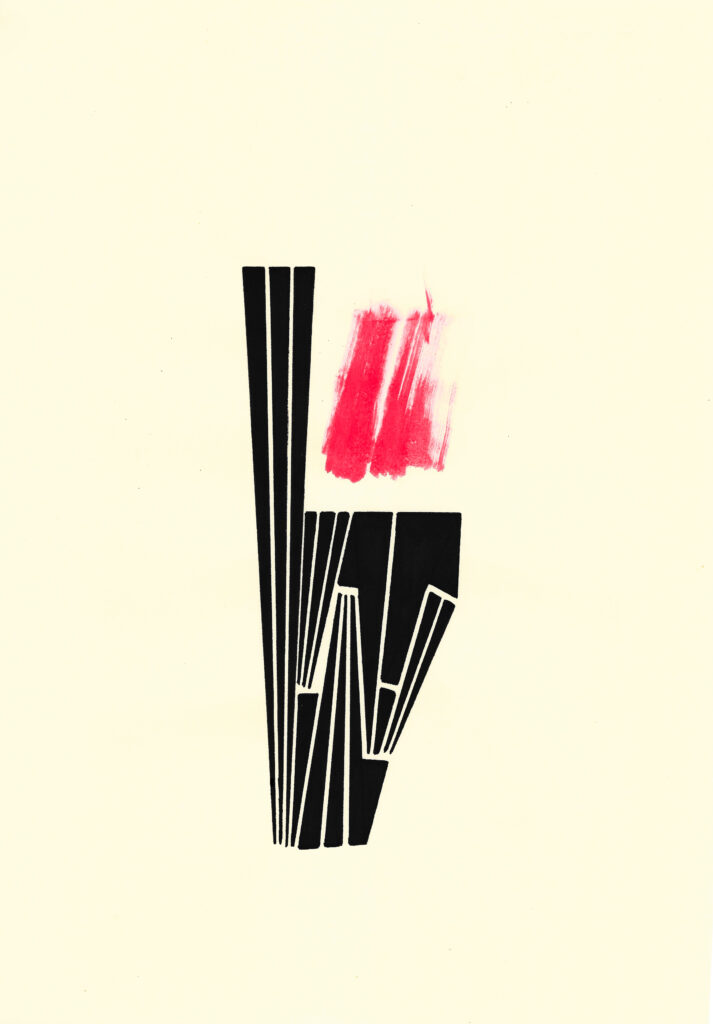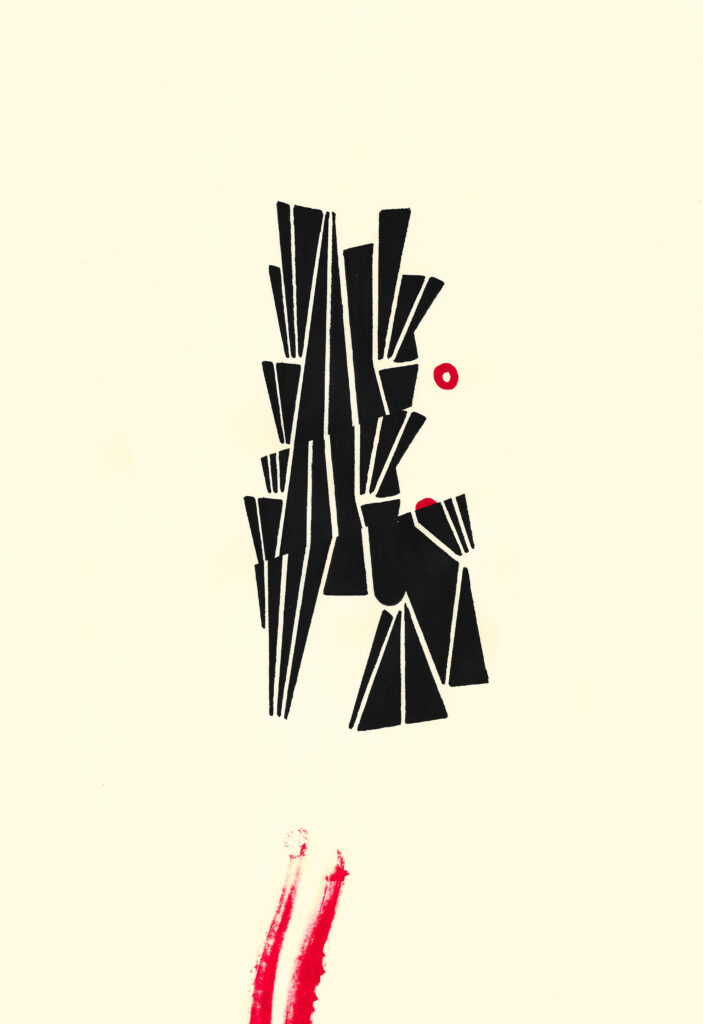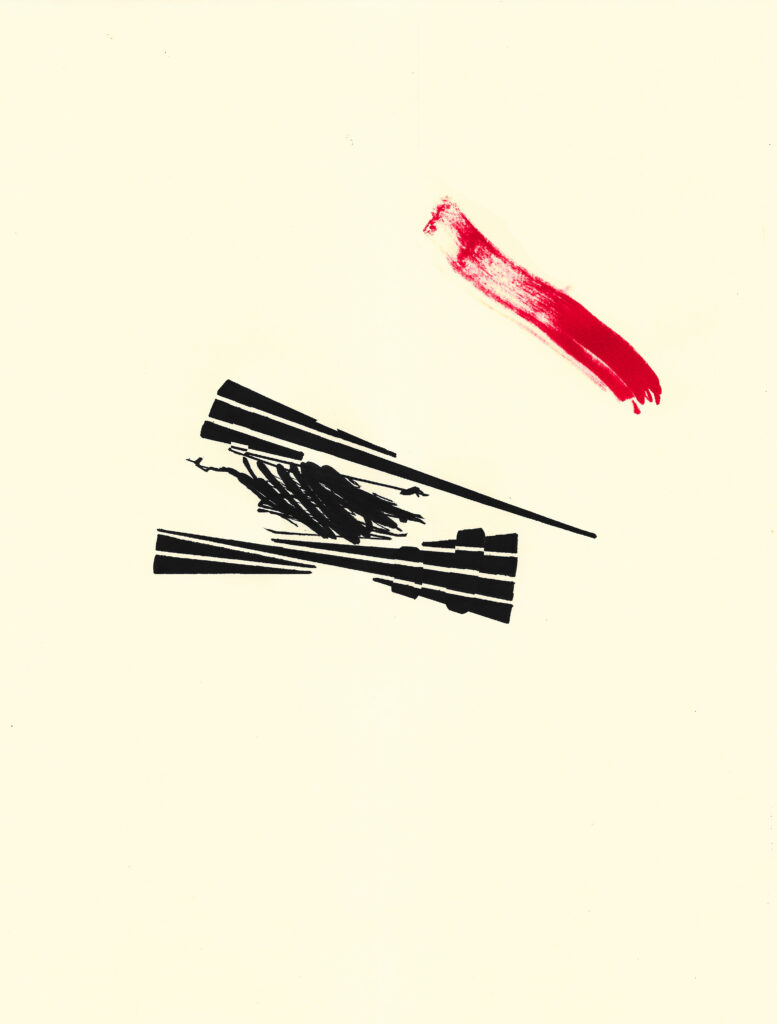Aeneid, from Book 9
[With the Trojans under siege by Turnus and his army, the two friends Nisus and Euryalus set out on a bold mission to sneak through the Rutulian camp and bring back Aeneas. Ascanius, Aeneas’s son, sends them off with gifts and promises.]
IV. sed aurae omnia discerpunt et nubibus inrita donant.
Thus speaking through tears, Ascanius strips off
the gold sword, the one Lycaon of Cnosus made so skillfully
and fitted to an ivory sheath,
holds it out to Nisus.
Mnestheus hands over to Nisus a nice lion-skin,
and Aletes trades helmets with him.
Everyone walks Nisus and Euryalus to the gates,
making vows. Ascanius,
with a wisdom beyond his years,
gives them a bunch of commissions
to pass to his dad, not realizing
they’d all be scattered to the four winds.

The two boys step over trenches and through shadows
into the enemy camp. They’ll be the death of many.
Everywhere they look: bodies
stretched out on the grass, chariots tilted
between wheel and harness, arms
lying here, empty wine jugs there.
Nisus speaks:
“Euralyus, this moment calls for
a bold hand. Here we go.
You keep watch. Make sure
no one moves behind us.
I’ll deal out death and you
follow the trail of blood I leave.”
Then he turns and stabs proud Rhamnes,
who’s piled up a stack of pillows
and lies snoring into the night – a king, actually,
and one of Turnus’s dearest augurs.
No way he could augur his way out of this.
Next Nisus runs through three fools
snoozing nearby. The arms-bearer of Remus
and his charioteer – he chops off their heads
right at the neck with his blade.
Now he beheads their master
and leaves his neck belching blood,
pillow and dirt both black with it.
Lamyrus and Lamus. Young Serranus,
a pretty good-looking kid,
who’d stayed up late and lies
conked out sleeping. Happier, no doubt,
if he’d burned up the whole night in play
and welcomed the dawn.
Nisus is mad with bloodlust,
gorging on the poor sheep
who rest silently about him.
Euralyus is no slouch, either, feasting his rage
on a nameless crowd (Fadus and Herbesus,
Rhoetus and Abaris). Rhoetus
is awake after all, but fear
makes him hide behind a big bowl.
Euryalus tiptoes right up close and drives
his sword deep through his chest,
drawing it back out dripping death.
Rhoetus burps blood mingled with wine
and gives up the ghost, dying, while
Euryalus goes about his grim business.
He comes upon Messapus’s buddies.
There he sees the last fires flickering,
casting light on tethered horses
plucking at grass.
Nisus nudges him on the shoulder,
sensing they’ve maybe gone a bit too far. Says:
“Enough. Dawn’s coming, and we’ve cut
a nice path through the enemy.”
They make their way forward, leaving behind
lots of beautiful stuff. Weapons made of solid silver,
bowls and beautiful rugs.
Euryalus does grab the breastplates of Rhamnes
and his gold-studded belt, strapping them
fruitlessly to his brave shoulder. Then
he puts on Messapus’s helmet, decorated
nicely with plumes.
They cut out and head for safety.
Meanwhile, the cavalry’s come
from a nearby Latin town
bearing a message to Turnus, 300 men
all armed for battle, led by Volcens.
They’re nearing the camps when they see
these guys from a distance, the flash
of Euryalus’s pilfered helmet marking them
on the path.
Volcens shouts:
“HALT, men!
Why are you out here? Why armed?
Where you going?”

No response. The two boys melt into the woods
trusting in the night. The horsemen
block all known exits, placing guards
at each one. Euryalus
gets caught first. Dark branches
snare the awkward booty, and fear
trips him up. Nisus
gets away. But now
in his foolish flight he stops
and looks back for his missing buddy.
“Poor Euryalus,” he says to himself, “where did I lose you?
Where should I go? The path’s got me all turned around.”
And he wanders the quiet thickets,
reading the tracks of his own footsteps.
He hears horses. Shouts. Sees the signs of a chase.
He’s not there long when a scream reaches his ears–
Euryalus, who’s been cheated by the night,
being hauled away in the hubbub
by a whole bunch of them as he struggles to break free.
What should Nisus do? What does he dare do,
and with what arms? Or should he just burst
into the middle of them and hurry to certain death?
So he raises his arm with a sharp spear and addresses the heavens:
“You, goddess – Latonia’s daughter; be here now,
to help in this labor, glory of stars and guard of the woods.
If my dad ever brought gifts for me to your altars,
if I’ve ever done honor to you or hung offerings
in your chapel, now let me confuse these guys
and guide my missile through thin air.”
Thus speaking he puts his whole body into the throw.
The spear twists through night’s shadows
and lands in the back of Sulmo, breaking
there, and the splintered wood shoots into his gut.
He turns and belches death from his breast,
long sobs heaving through him.
The others look around. Nisus, emboldened,
steadies another spear, ready to let fly.
While they waver, the spear whistles
through Tagus’s head right at the temple
and hangs there hot in his butchered brain.
Volcens rages ineffectually, not knowing
from which direction the spears are coming
or where to throw his anger.
“You – you!” he sputters, “you’ll pay for this
when I…”
And he draws his sword and points it at Euryalus.

Then mad with fear Nisus shouts,
unable to hide himself in the dark or abide such horror:
“Me, me, I did it!
Turn your blades on me,
Rutulians! Everything’s my fault.
He wouldn’t have attacked you,
nor could he – may the stars themselves
bear witness – he just loved his
poor buddy too much.”
Even as he speaks the sword cuts
through Euryalus. Crosses the ribs
and bursts through the pink flesh
on the other side. Euryalus torques
around in death, over his lovely limbs
the gore gushes and his neck slumps
on his shoulder. Just like when a purple
flower’s cut down in the field, or
when poppies droop, pummeled
by the odd shower.
Nisus explodes
into their midst seeking Volcens.
It’s only for him he’s hung around.
The rest swarm him waving their swords.
He holds fast nonetheless, twirling
his bright blade, till he shoves it
straight through the grinning face
of the Rutulian and, dying,
takes his enemy with him.
Then he throws himself on his friend,
and breathing his last finds peace,
the peace of death.
Lucky guys!
If my songs are able, no day will
ever cross you out from the recollection
of eternity, at least not while the house
of Aeneas sits on the Capitol’s rock
and the father of Rome holds sway!
Publius Vergilius Maro, known to us as Virgil (70 B.C.-19 C.E.), is best remembered for his masterpiece, The Aeneid, in which he represented the Emporer Augustus as a descendant of the half-divine Aeneas, a refugee from the fall of Troy and legendary founder of Rome. Virgil claimed on his deathbed that The Aeneid was unfinished and expressed a desire to have it burned, but it became the national epic of ancient Rome, a monument of Latin literature, and has been regarded as one of the great classics of Western literature ever since. Virgil’s other works include the Eclogues and the Georgics, also considered masterpieces.
David Hadbawnik is a poet and translator who currently lives in Minnesota. His translation of Aeneid books 1-6 was published by Shearsman in 2015, and selections have appeared in Denver Quarterly, Chicago Review, and Blackbox Manifold, among other journals. Aeneid books 7-12 was recently published by Shearsman.
Omar Al-Nakib is a Kuwaiti visual artist and poet. He has exhibited locally, and his poetry has been published in Dispatches from the Poetry Wars and the AUKuwait Review.